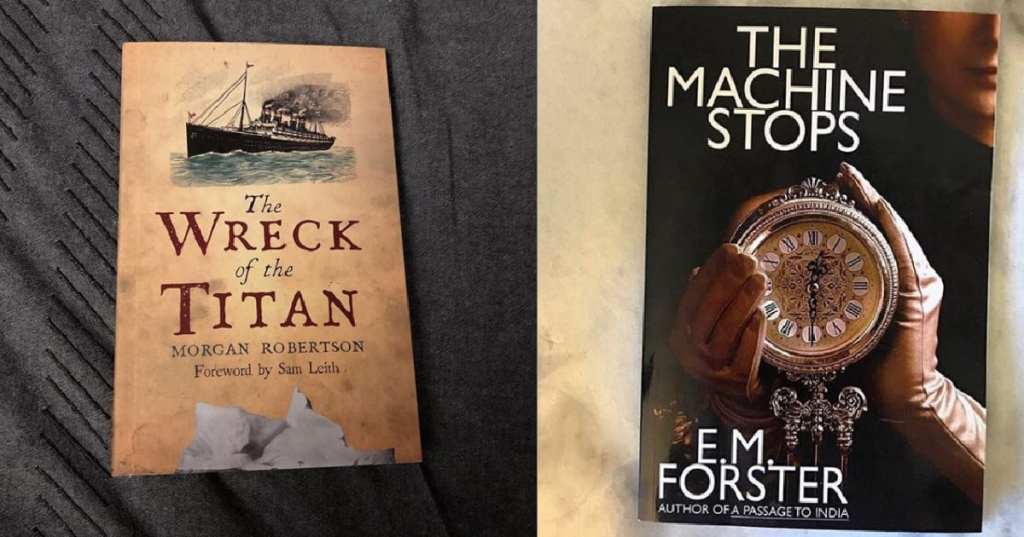Trending Now
There’s been a lot of talk over the past several years about all of the spooky ways The Simpsons television show seems to have predicted the future, but what if I told you their writers are not alone?
Because it certainly seems like the authors of these 7 books had a good idea of what was coming for us all, too.
7. The Machine Stops
https://www.instagram.com/p/CB3ad93j3uJ/
In this 1909 novella by E.M. Forster, characters have to stay home to keep sickness at bay.
They only interact virtually, and the entire story is a pretty crazy accurate take on life in the now.
6. The Wreck of the Titan
https://www.instagram.com/p/Bq_VmDrFCTt/
In 1896, author Morgan Robertson penned a novel about Titan, the “largest craft afloat” running into an iceberg in the Atlantic, sinking, and causing mass loss of life due to her lack of adequate lifeboats.
14 years later, Titanic sank in an eerily similar manner, and newspapers at the time called the book “an amazing prophecy.”
5. The Narrative of Arthur Gordon Pym of Nantucket
https://www.instagram.com/p/B9pT4pSAfXi/
This is Edgar Allen Poe’s only novel, published in 1838. In it, several sailors are left adrift and starving after their whaling vessel is hit by a storm. The crew draw lots to decide who will be sacrificed and eaten, and one poor soul named Richard Parker drew the short straw.
50 years later, a man named Richard Parker was killed and eaten by his starving shipmates after the Mignonette sank.
4. The World Set Free
https://www.instagram.com/p/B7-hd6bIAlC/
In this novel by H.G. Wells, the author predicted that the problem of extracting energy from the atom would be solved by 1933…the same year Leo Szilard did, in fact, posit a nuclear chain reaction.
Wells also described the idea of “atomic bombs,” right down to the fact that battlefield would remain radioactive for years afterward.
He published the novel in 1914.
3. Stand on Zanzibar
https://www.instagram.com/p/CBmJaooFh6o/
This book was written in the 1960s but set in 2010, and in it, author John Brunner predicts a popular politician and Obomi, random mass shootings, a European Union, and people looking up things on an encyclopedia on their phones.
2. Gulliver’s Travels
https://www.instagram.com/p/CEOAPJRAr4L/
Author Jonathan Swift wrote this satire in 1726 and went after many aspects of British life. While making fun of scientists and their obscure research, he wrote about two moons with short orbital periods around Mars – and 150 years later, those moons were discovered.
Several craters on Mars’ moon Phobos are named after Swift’s characters.
1. Fahrenheit 451
https://www.instagram.com/p/CD61nuNDGax/
Ray Bradbury’s dystopian future likely hits a bit too close to home, as the people in it consume entertainment and other media instead of talking to each other.
It’s pretty eerie, don’t you think?
Are they just good at guessing, good at reading the writing on the wall, or is time travel a thing in the future? Tell us your vote in the comments!






